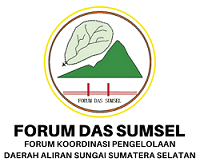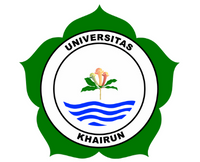The Role of Women in Farming Activities and the Coffee Supply Chain in Cigalontang District, Tasikmalaya Regency
Abstract
Gender involvement in agricultural cultivation cannot be avoided, even though it has the risk of leading to inequality and even injustice. Few ordinary people understand the importance of gender equality and dynamics in the agricultural sector. The research aims to describe the characteristics of coffee farmers in Cigalontang District and map the allocation of women's work time in social, economic and domestic activities in coffee farming. The research method used is qualitative descriptive analysis and mathematical formulas for calculating women's work time in the economic, social and domestic fields, according to the Harvard framework. The research results show that the majority of coffee farmers are over 50 years old with the majority's education level being elementary school graduates. The land ownership status is mostly sharecroppers with an average of 0.18 ha to 2.6 ha of total cultivated land. Meanwhile, most farmers have 2.5 to 8.4 years of cultivation experience. As for the time spent by women coffee farmers as housewives, the most dominant time is allocated to domestic activities. Meanwhile, coffee farmers who work as traders and service providers spend most of their time on economic activities. Women coffee farmers with trading and service professions allocate less time for social activities than women coffee farmers who work as housewives.
Keywords
Full Text:
PDFReferences
Ardinal C. 2021. ”Relasi Gender Dan Keberlanjutan Kampung Ramah Lingkungan Pandawa 5 Cibinong, Kabupaten Bogor”. Jurnal Sains Komunikasi Dan Pengembangan Masyarakat [JSKPM], 5(1): 173-188. https://doi.org/10.29244/jskpm.v5i1.805
BPS Kabupaten Tasikmalaya. 2021. ”Kabupaten Tasikmalaya Dalam Angka 2021”. Tasikmalaya: BPS Kabupaten Tasikmalaya.
Creswell J.W. 2014. “Research Design: Qualitative, Quantitative, and Mixed Methods Approaches (4th ed)”. California:Sage Publication.
Damatun M., Rantung V.V, dan Memah M.Y. 2017. “Peran Tenaga Kerja Wanita dalam Usahatani Hortikultura di Kelurahan Wailan, Tomohon Utara, Kota Tomohon”. Agri-SosioEkonomi Unsrat, Vol. 13: 169-182.
Fitri R.A., Prasmatiwi F.E., dan Riantini M. 2022. ”Peran Gender, Pendapatan dan Kesajahteraan Subjektif Rumah Tangga Petani Kopi di Kecamatan Sumberejo Kabupaten Tanggamus”. Jurnal Ilmu Ilmu Agribisnis: Journal of Agribusiness Science, Vol. 10 No.2 hal. 291-298.
Hirpa Tufa A., Alene A.D., Cole S.M., Manda J., Feleke S., Abdoulaye T., Chikoye D., and Manyong V. 2022. “Gender differences in technology adoption and agricultural productivity: Evidence from Malawi”. World Development, 159, 106027. https://doi.org/10.1016/j.worlddev.2022.106027
Meiranti L. 2016. ”Dinamika Relasi Gender Dalam Rumah Tangga Petani di Desa Cipelang, Kecamatan Cijeruk, Kabupaten Bogor”. Bogor: IPB.
Milonda, Evahelda, dan Muntoro. 2023. ”Perilaku Petani Pada Produksi Lada Putih di Desa Delas, Kecamatan Airgegas , Kabupaten Bangka Selatan”. Journal of Global Sustainable Agriculture, Vol. 4 No.1 hal. 15-22.
Muhlisin M., dan Trismiaty, F.K. 2017. “Tingkat Partisipasi Ibu Rumah Tangga pada Usahatani kopi dalam Upaya Meningkatkan Pendapatan Keluarga di Desa Genting Kabupaten Semarang”. Jurnal Masepi, Vol. 2 No.2, 149-200.
Prantiasih A. 2014. ”Reposisi Peran dan Fungsi Perempuan”. Jurnal Pendidikan Pancasila Dan Kewarganegaraan, Vol. 27 No.1 hal. 1-6.
Puspitarini D., dan Femilia, P.S. 2018. ”Relasi Gender dan Kehidupann Sosial Ekonomi dalam keluarga Buruh tani Perempuan di Kecamatan Panti Kabupaten Jember”. An Nisa’, Vol. 11 No.2 hal. 117-144.
Ramadhani F.P., dan Hubeis A.V.S. 2020. “Analisis Gender dalam Upaya Adaptasi dan Mitigasi Perubahan Iklim”. Jurnal Sains Komunikasi Dan Pengembangan Masyarakat, 4(2): 155-166. https://doi.org/10.29244/jskpm.4.2.155-166
Rizqi A., Mardiningsih D., dan Sumekar W. 2019. ”Analisis pengaruh faktor-faktor sosial terhadap curahan waktu kerja wanita tani kopi robusta di Kecamatan Gemawang Kabupaten Temanggung”. Jurnal Ekonomi Pertanian Dan Agribisnis, Vol. 3 No.2 hal. 1-10.
Rozi Maulana F., Mustopa Romdhon M., and Reswita, R. 2022. “Performance Analysis of Micro, Small, and Medium Enterprises (MSMEs) of Ikola Coffee Using the Balanced Scorecard Method”. Journal of Global Sustainable Agriculture, 3(1): 8-13. https://doi.org/10.32502/jgsa.v3i1.5292
Sumilat D.E., dan Wahyuni E.S. 2020. “Analisis Gender Rumah Tangga Tenaga Kerja Perempuan dalam Sektor Industri Garmen dengan Sistem Putting Out”. Jurnal Sains Komunikasi Dan Pengembangan Masyarakat, 4(2): 167-180. https://doi.org/10.29244/jskpm.4.2.167-180
Trinitasari N. 2018. ”Analisis Gender Dalam Rumah Tangga Petani Melinjo”.Bogor: IPB.
Unu A., Sendow M.M., dan Wangke W.M. 2018. “Curahan Waktu Kerja Wanita Dalam Kegiatan Usahatani Padi Sawah Di Desa Rasi Satu Kecamatan Ratahan Kabupaten Minahasa Tenggara”. Agri-Sosioekonomi, 14(3): 105-110. https://doi.org/10.35791/agrsosek.14.3.2018.21540
DOI: https://doi.org/10.32502/jgsa.v4i2.8290
Refbacks
- There are currently no refbacks.
Indexed by:
Journal of Global Sustainable Agriculture
Diterbitkan oleh Fakultas Pertanian, Universitas Muhammadiyah Palembang
Contact Person:
Rika Puspita Sari, M.Si (+62 813-7490-0341)
Klinik Publikasi Pertanian
Faculty of Agriculture, Universitas Muhamamdiyah Palembang
JL. Jend. A. Yani 13 Ulu Palembang, South Sumatra, Indonesia
Tel. (+62)711-511731; Email: kppfpump@gmail.com; Website: https://jurnal.um-palembang.ac.id/JGSA

This work is licensed under a Creative Commons Attribution 4.0 International License.







1.png)

13.png)





